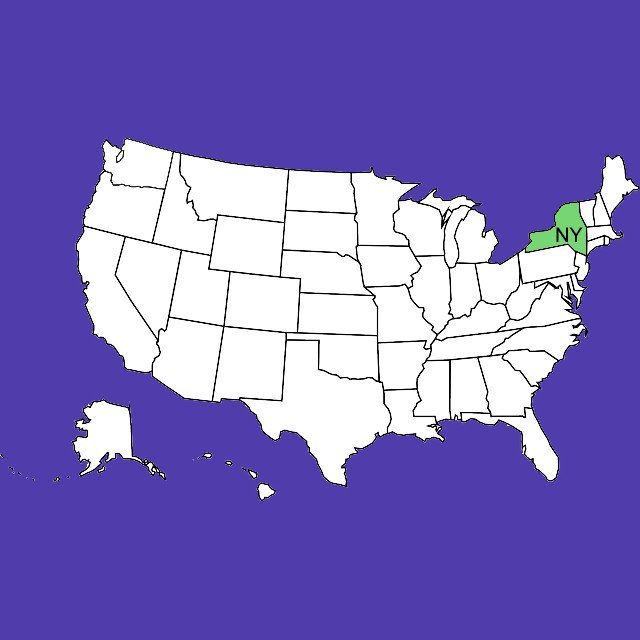
New York’s off duty conduct law will now explicitly apply to an employee’s off-duty use of cannabis. The change in law came as a result of the recent passage of “The Marijuana Regulation and Taxation Act,” which generally legalized the sale and use of cannabis for individuals 21 and over, and presents real compliance challenges for employers, which we discuss further below.
New York’s Off Duty Conduct Law Prohibits Employers From Discriminating Against Employees for their Lawful Off Duty Activities
As background, New York’s off duty conduct law (NY Labor Law §201-D) prohibits employers from discriminating against employees for engaging in certain lawful off-duty activities – including political activities, recreational activities and the legal use of consumable products – where those activities occur outside of working hours, off the employer’s premises, and without the use of the employer’s equipment or property. During the last election cycle, employers were mostly fixated on the “political activities” portion of the law, but with the legalization of cannabis, employers should also fix their sights on the recreational activities and legal consumable use provisions.
The off duty conduct law provides some notable exceptions to its protections, including among others:
- Where the employee’s engagement in the lawful activity would create “a material conflict of interest related to the employer’s . . . business interest”;
- Where the employer believes that its actions were required by statute, regulation, ordinance or other government mandate;
- Where the employer believed its actions were permissible under an “an established substance abuse or alcohol program or workplace policy, professional contract or collective bargaining agreement.”
Where one of these exceptions applies, the employer can still refuse to hire or could terminate the individual on account of these otherwise lawful activities.
The law is generally enforced by the state attorney general, but an individual is permitted to commence an action “for equitable relief and damages.”
New York’s Off Duty Conduct Law Now Covers Cannabis Use
The prohibition against discrimination because of an individual’s legal use of consumable products or for an individual’s legal recreational activities now explicitly include “cannabis in accordance with state law.”
But the new law also adds a new provision (§4-a) to the “exceptions” provision, which states that employers do not violate the law where the they take an “action related to the use of cannabis” based on the following:
- the employer’s actions were required by state or federal statute, regulation, ordinance, or other state or federal governmental mandate;
- the employee is impaired by the use of cannabis, meaning the employee manifests specific articulable symptoms while working that decrease or lessen the employee’s performance of the duties or tasks of the employee’s job position, or such specific articulable symptoms interfere with an employer’s obligation to provide a safe and healthy work place, free from recognized hazards, as required by state and federal occupational safety and health law; or
- the employer’s actions would require such employer to commit any act that would cause the employer to be in violation of federal law or would result in the loss of a federal contract or federal funding.
These amendments are effective immediately.
Additional Thoughts and Next Steps for Employers
To be clear: the update to the law does nothing to prevent employers from implementing and administering drug-free workplace policies, which are still strongly recommended. But the administration of these policies just became more complicated given the wording of the amendments. An employer cannot discipline (e.g. terminate) an employee because they used cannabis before they started the workday, but can do so if they are “impaired” by its use during working hours. Here, though, the law attempts to define “impairment” such that:
the employee manifests specific articulable symptoms while working that decrease or lessen the employee’s performance of the duties or tasks of the employee’s job position, or such specific articulable symptoms interfere with an employer’s obligation to provide a safe and healthy work place, free from recognized hazards, as required by state and federal occupational safety and health law.
That’s a mouthful! And it begs for further clarification from the Department of Labor via regulations or other guidance (and, of course, will be subject to interpretation from the courts).
One can easily see the challenges it presents employers trying to assess impairment in real time and to ensure safety at their worksites at all times. And this becomes even more challenging as employers continue remote work arrangements and enter the world of the hybrid working environment – employers will have less visibility into their employee’s at-home performance, even though employers are still responsible for ensuring the safety conditions of remote work sites (such as homes).
Other clarifications are also needed:
- Will the law’s “material conflict” exception apply when an employer seeks to discipline an employee who uses cannabis while off-duty because such use runs contrary to their “business interests”? We could envision myriad scenarios where that exception may apply.
- Whether the cannabis-related amendments to the law conflict with the Federal Controlled Substance Act, which makes the use of cannabis illegal? Courts have been split on this issue to date.
- Will service providers other than employees be able to take advantage of the law’s protections? The law, and in particular, the amendments, appear to be aimed at protected employees only, but we will keep a watchful eye on whether the law will be interpreted more broadly.
Although some uncertainty remains around legal interpretations and application, we recommend that employers still take the following steps to come into compliance:
- Review existing relevant policies to determine whether and to what extent modifications are needed, including modifications to drug-free workplace policies; drug testing policies (particularly with respect to the standard for reasonable suspicious and the use of random drug testing); and medical marijuana reasonable accommodations. (This is also a good time to remind employers operating in NYC, that NYC law also prohibits them from engaging in pre-employment marijuana testing (unless an exception applies)).
- Consider the law’s impact on any collective bargaining agreement, including with respect to drug testing and unionized safety-sensitive positions.
- Assess whether such a policy or practice could violate applicable law or cost the employer a federal contract or funding. For example, certain Federal contractors who receive federal grants may be subject to the Drug Free Workplace Act, which, in general, requires such contractors to prohibit their employees providing services in connection with the grant from, among other things, using a controlled substance, such as marijuana, in the workplace.
- Assess the roles which the employer considers “safety sensitive”, and therefore would allow the employer to prohibit the employee’s impairment in any way while performing job duties. As part of this, employers should pay close attention to potential guidance from New York State on what it considers a safety-sensitive role.
- Clearly communicate the employer’s expectations to employees regarding drug use in the workplace, including who it considers occupying a safety-sensitive role and by providing guidelines around impairment.
- Train supervisors and managers to ensure the proper implementation of new or revised conduct policies and expectations regarding a safe workplace.




